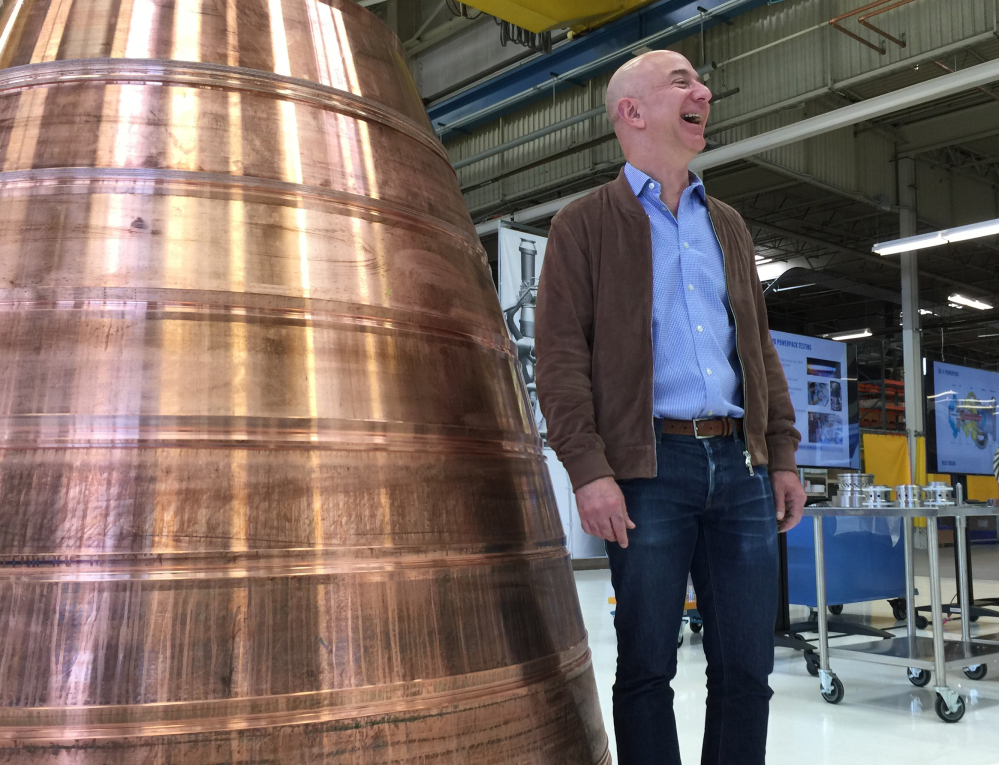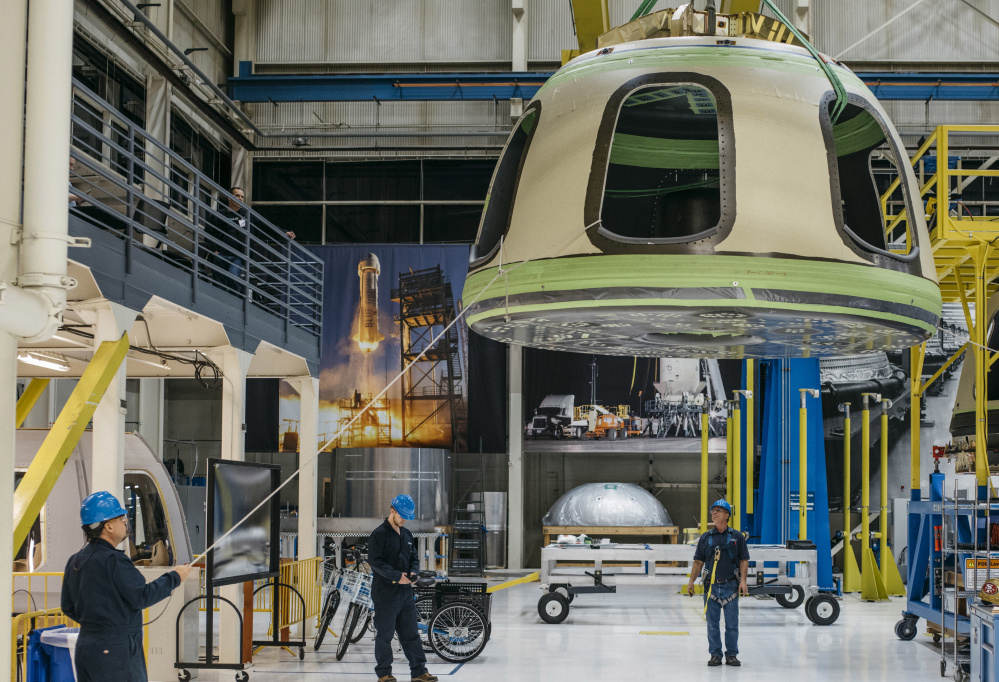KENT, Wash. — Long before he ever conceived of the idea to sell books on the Internet, he was obsessed with space. It started at age five when he watched the Apollo 11 moon landing, and continued on through his Trekkie adolescence, to high school, when Jeffrey P. Bezos gave his valedictory speech about space travel and reportedly told friends that the “future of mankind is not on this planet.”
The obsession continued as the book store idea became Amazon.com and made him one of the world’s richest men, freeing him to think seriously about his childhood obsession and to do something about it.
“I wanted to start a space company from when I was a little kid, but I never expected to have the resources to do so,” Bezos told a group of reporters here Tuesday. “Then I won this lottery ticket called Amazon.com. And so when Amazon became a successful company, I realized hey I can actually fulfill my childhood dreams of starting a space company, and that’s what I did.”
His space company Blue Origin – blue for the “pale blue dot” that is Earth; “origin” for where humanity began – is now, some 16 years after its founding, showing tangible signs of progress. And so for the first time, Bezos opened the doors of the company he has kept quiet for years and talked openly and at length about its vision-the day “when millions of people are living and working in space.”
Over the course of more than four free-wheeling hours, he talked about the future of space tourism, and why increased energy consumption is driving space exploration. He talked about how space will be a viable business, and why Mars is for only the “very adventurous” and makes Antarctica look like “a garden paradise.” And then he discussed what he called “the big inversion” – how he predicts that all heavy industry will move off Earth into space, where there are limitless resources, so that Earth could be preserved.
And he made it clear that he is as serious about the future of space as he is online retailing, if not more so. (Bezos also owns The Washington Post)
“It’ll just be an incredibly fun, inspiring part of humanity’s future to go exploring the solar system,” he said. “Who wouldn’t want to do that? Sign me up.”
Compared to Elon Musk’s SpaceX, which was founded a couple years later, Blue Origin is still in its infancy. SpaceX has charged ahead, passing milestone after milestone, with its Falcon 9 rocket and Dragon spacecraft, which became the first private spacecraft to visit the International Space Station. In addition to flying cargo to the station, SpaceX also has a contract to fly astronauts there by 2017, along with Boeing. It also has won the right to bid on lucrative national security launches and is competing in the commercial satellite launch business as well.
SpaceX’s success has helped touch off a renaissance in the commercial space industry, which includes Richard Branson’s Virgin Galactic, and which, like Blue Origin, promises to take tourists to space, said Greg Autry, a professor at the University of Southern California’s Marshall School of Business.
“SpaceX has had to do the heavy lifting in getting the public, and getting Congress and others to accept commercial space,” he said.
Blue Origin has moved much slower. Bezos is famous for taking the long view with his ventures, moving methodically, if relentlessly, toward his uncompromising vision. That was true at Amazon, and Bezos said the same philosophy applies at Blue Origin, whose motto is Gradatim Ferociter, which translates loosely to “Step By Step, Ferociously.”
Send questions/comments to the editors.




Success. Please wait for the page to reload. If the page does not reload within 5 seconds, please refresh the page.
Enter your email and password to access comments.
Hi, to comment on stories you must . This profile is in addition to your subscription and website login.
Already have a commenting profile? .
Invalid username/password.
Please check your email to confirm and complete your registration.
Only subscribers are eligible to post comments. Please subscribe or login first for digital access. Here’s why.
Use the form below to reset your password. When you've submitted your account email, we will send an email with a reset code.